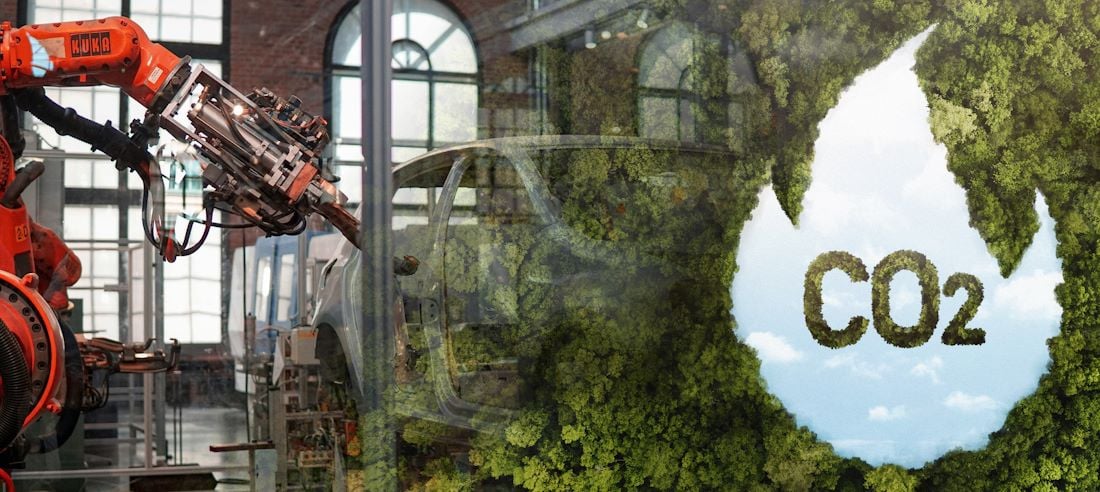In July 2011, knowtheflow covered the possible failure to reach the EU’s energy efficiency target. Of all 20-20-20 goals, efficiency was the only one in danger of not being achieved. In the meantime, not much has changed; energy efficiency remains as much an issue in Europe as before. What’s more, there is a currently proposed revision of the energy efficiency directive that threatens to seriously water it down.
3% Public Building Renovation Goal in Question
One of the three main points included in the European commission’s proposal for an energy efficiency directive was the improved energy efficiency of public buildings. Ana-Maria Tolbaru, author at the European policy information platform, EurActiv, spoke of how this goal is being threatened:
[…] the energy efficient renovation of buildings, was also reduced in scope. The initial proposal was to renovate 3% of the existing building stock owned by public authorities with a total usable floor area of over 250m2.However, member states asked for this requirement to apply only to buildings occupied and owned by central government, which considerably reduces the number of structures falling under this provision. [….]
Buildings account for 40% of Europe’s primary energy consumption and 36% of its carbon dioxide emissions. Experts consider that in terms of energy savings, the 3% target proposed in the energy efficiency directive is already very limited and that consumers’ bills will not see a reduction unless the target applies to all buildings.
Apart from the renovation of public buildings, the proposed directive consisted of two other ideas. Both are connected to the introduction of a smart grid – an electricity system in which, for instance, the consuming devices “know” when it would be best to consume energy, e.g., at windy or sunny times when renewable energies produce most.
Denmark – World’s Most Efficient Country
It is not surprising that the call for agreeing on energy efficiency measures is put on the agenda under the current EU presidency held by Denmark, possibly the world’s most efficient country. When it comes to the wealth of a national economy in relation to the energy used to generate this wealth, Denmark is far ahead of Europe’s rest, as Stephen Tindale wrotes for Public Service Europe:
Denmark uses energy more efficiently than any other European Union member state. Successive governments have implemented ambitious and consistent policies on energy efficiency since the oil shocks of the 1970s. As a result, Denmark today only uses 60 per cent of the energy per unit of gross domestic product of the EU average.
Referring, on the one hand, to Germany, France and other EU member states that are making efforts to lower the energy efficiency directive’s goals and, on the other, the European Commission, which published a document that focuses on the importance of sticking to the initial proposals in the directive, he continued:
It would be better for Copenhagen to stick to most of the European Commission’s proposals and remind its partners that in the long run these reforms would save them billions of euros. Where necessary, Denmark could point to its own experience to underline the point.
In citing Denmark’s experience, Tindale may have been thinking of projects like Gyldenrisparken social housing, where the green transition strives to be “economically, architecturally and aesthetically attractive”.
EU Pays €450 bn Every Year for Fossil Energy
Concerning the saving of billions of euros, let me show you some figures about the cost of inefficiency. In a Reuters article, Claude Turmes, Green Party Member of the European Parliament, specified how expensive importing fossil energy is. Please note: these are direct costs only. External effects due to health issues from emissions and future costs for climate change effects are not included here:
The EU has a yearly 450 billion euro trade deficit due to oil and gas imports. The EU energy efficiency directive is the vehicle to replace large parts of this cash flow out of the EU economy programme into local jobs and added value.
400,000 – 1.5 bn Green Jobs, Under The Right Conditions
And Ana-Maria Tolbaru of EurActiv added another economic aspect: employment. She cited Philip Lowe, the European Commission’s Director-General for Energy:
At the moment, the EU is lagging behind at only 9% energy savings. Missing the target at this level will cost member states at least €34 billion by 2020, and the opportunity to create more than 400,000 “green” jobs, Lowe said.
According to a BusinessGreen article, Connie Hedegaard has argued that, by reducing labor taxes and much rather moving the tax load to energy and emissions, 1.5 million jobs could be created EU-wide:
Welcoming the proposals, Climate Commissioner Connie Hedegaard wrote on social media site Twitter that energy efficiency measures could lead to two million jobs by 2020, increased recycling of key materials could create 560,000 new jobs by 2025, and 2.8 million people could work in renewable energy by the end of the decade. [….]
“If Europe does not step up its green economy efforts, we risk losing an immense source of quality jobs,” she said. “If we water down our efforts on energy efficiency, we water down the job potential as well.”
Can the EE Directive Limit ETS Exceptions?
Creating jobs, saving money, saving energy – supporters of an ambitious directive name multiple positive effects. Moreover, there is the hope of using it as an instrument to limit exceptions from emission trade schemes:
The carbon market is currently overflowing with spare emissions allowances due to the economic crisis, which has sent the carbon price down. The most effective way of pushing the price back up would be by avoiding too many allowances coming onto the market in the coming years.
Rémi Gruet of the wind energy association EWEA emphasized the need for an ambitious energy efficiency directive now since it is the “only upcoming legislative opportunity to push such a measure”.
Smart Metering Saves 9% On Household Energy
Another important part of the directive, which is in danger of getting lost, is smart metering, alluded to above. John Harris, vice president of the electricity metering company Landis+Gyr, cited a study that shows a possible 9% reduction of electricity consumption for private households as soon as they are equipped with smart meter displays. He put the general need for higher efficiency into nice words:
Assuming that European consumers will not accept a substantial reduction in the level of comfort they currently enjoy nor tolerate exorbitantly high energy prices, doing more with less is vital.
As you see, there are lots of reasons to realize the directive in its initial form. But don’t panic: as we know, it took five years to agree on the 20-20-20 goals, so even if there is some quarreling going on right now, we can still hope for an ambitious energy efficiency directive. Energy Commissioner Günther Öttinger said yesterday that there was “no blockade from anybody” in the recent meeting of EU member states – Good news, in my opinion.
Article image from Wikimedia Commons shows a worker installing an energy efficient window





